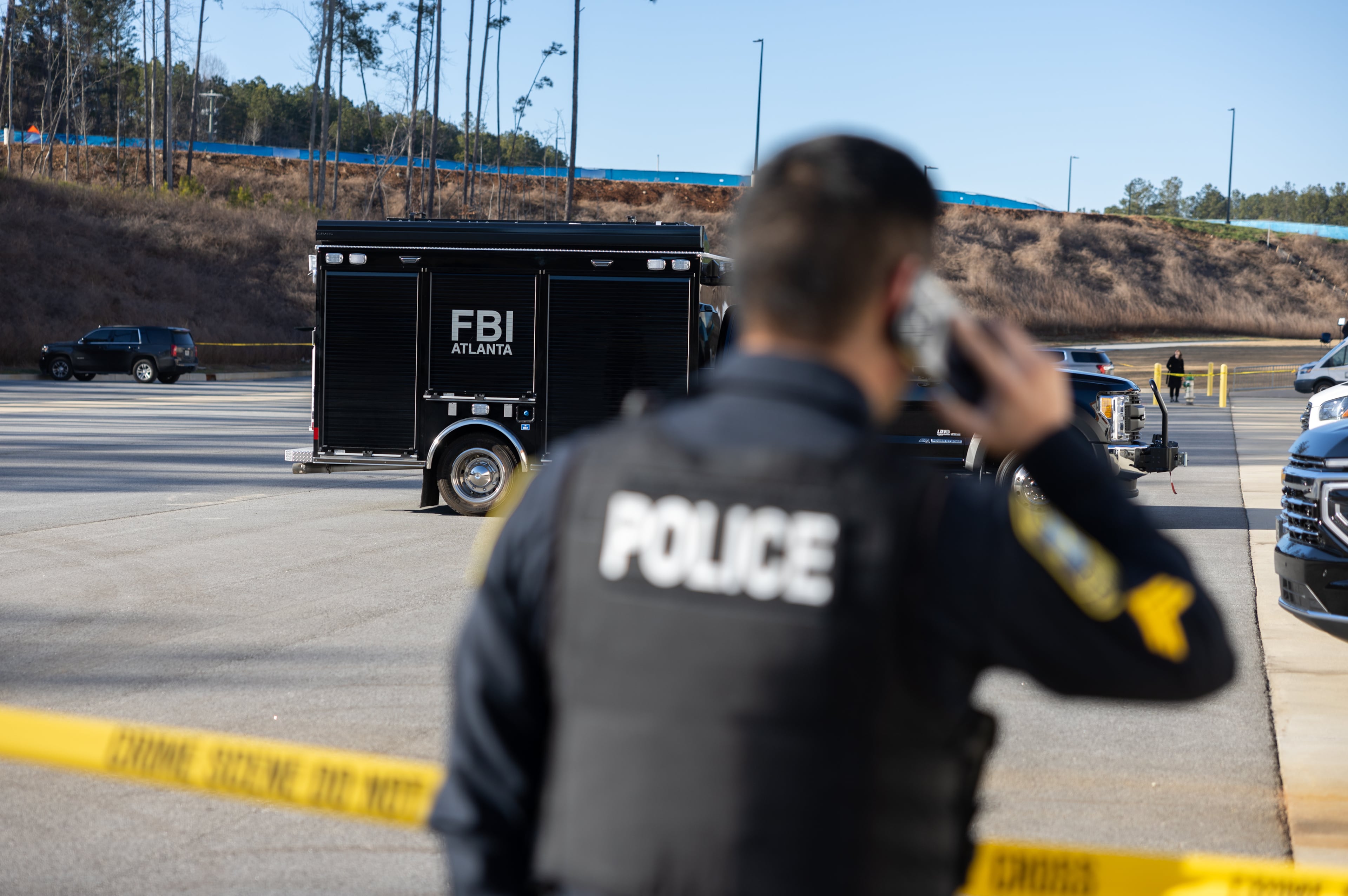Who is FBI Director Christopher Wray?

On Wednesday, FBI Director Christopher Wray announced he will resign in January at the end of President Joe Biden’s term.
That news comes after President-elect Donald Trump recently said he would fire Wray after he takes the oath of office next month and replace him with former Justice Department official Kash Patel.
During his first presidential term, Trump nominated Wray to be the eighth director of the FBI, calling him “a man of impeccable credentials.” Wray’s 10-year term expires in 2027, which means he would have to either resign or be fired in order to be replaced by Patel, who must still win Senate confirmation.
Patel, a Trump loyalist, is a longtime critic of the bureau and has called for shutting down its Washington headquarters and then reopening it as a “museum of the deep state.”
Although Wray has been FBI director in Washington for the past seven years, he continues to have deep Atlanta ties.
Here are five things you need to know about him.
1. An Atlanta lawyer: Wray, 57, moved to Atlanta in 1993 to join King & Spalding, one of the city’s top law firms. He left King & Spalding in 1997 to become a federal prosecutor at the U.S. Attorney’s Office here. He tried a number of high-profile cases.
Among them: He helped secure a guilty plea to a mail fraud charge from Pat Jarvis, once a popular Atlanta Braves pitcher who later served as DeKalb County sheriff. He obtained corruption convictions against the city of Atlanta’s former chief investment officer and a politically connected businessman. And he was instrumental in the prosecution of a man convicted of setting church fires, one of which killed a Georgia firefighter.
2. Mr. Wray goes to Washington: Wray was recruited to join the U.S. Department of Justice in 2001 by Larry Thompson, a former King & Spalding colleague serving as deputy attorney general.
After the 9/11 terrorist attacks, Wray worked closely with Thompson coordinating anti-terrorism and counterespionage efforts.
“Chris was very deliberate, made sound decisions, had good judgment and never got panicked,” Thompson said in a 2018 interview. “I relied upon him a great deal.”
In 2003, President George W. Bush nominated Wray to be assistant attorney general. He won unanimous Senate approval to head the department’s criminal division and became the youngest person to hold that position since the Kennedy administration.
“At the age of 36, Mr. Wray has accomplished more in the legal profession than many of us as attorneys do in a lifetime,” then-Sen. Saxby Chambliss, R-Ga., said at Wray’s confirmation hearing.
While heading the criminal division, Wray oversaw the prosecutions of terrorism cases as well as several high-profile corporate fraud cases, such as the Enron scandal. He returned to King & Spalding in 2005 in Atlanta and worked there as a partner until being tapped to head the FBI.
3. An independent streak: On a number of occasions, Wray pushed back against Trump. When Trump tweeted in December 2017 that the FBI’s reputation was in “tatters” and was the worst in its history, Wray told the House Judiciary Committee a few days later that the bureau he saw had “tens of thousands of brave men and women who are working as hard as they can to keep people they will never know safe from harm.”
After being confirmed by the Senate with a 92-5 vote, Wray held an invitation-only, swearing-in ceremony in Washington. Among Wray’s invitees: Sally Yates, his former colleague at the U.S. Attorney’s Office here and whom Trump had fired as acting U.S. attorney general when she refused to defend the administration’s travel ban.
4. Personal: Wray was born and grew up in Manhattan. He attended Phillips Academy, a prestigious preparatory school in Andover, Mass., where he played in rock bands and was a member of the wrestling and rowing teams.
He then graduated cum laude from Yale University with a degree in philosophy. During his freshman year, he met fellow student Helen Howell, an Atlantan who graduated from Westminster Schools and whose great-grandfather, Clark Howell, once owned The Atlanta Constitution. They were married at the Cathedral of St. Philip in Buckhead before Wray returned to Yale to get his law degree. They have two children.
After Yale law school, Wray clerked for conservative jurist J. Michael Luttig on the federal appeals court in Richmond. Since retiring from the bench, Luttig has strongly criticized Trump and he even endorsed Vice President Kamala Harris in the 2024 presidential election.
5. Has not seen eye to eye with Trump on several occasions. Just months into his tenure as FBI director, Wray found himself at loggerheads with Trump. In January 2018, Wray went public with a request that the White House block the release of a classified House GOP memo that alleged abuses by the FBI in the Russian election interference investigation. In a statement, the FBI said it had “grave concerns” about the memo’s accuracy. Even so, Trump declassified the memo and it was soon released by House Republicans, enraging Democrats and alarming national security officials.
This past Sunday, Trump posted on Truth Social that those convicted of the Jan. 6 insurrection at the U.S. Capitol were “J-6 hostages” and victims of “an abuse and miscarriage of justice.”
Patel, Wray’s possible successor, has called the Jan. 6 attack part of a “free speech movement.”
But Wray condemned it during testimony before the Senate Judiciary Committee in 2021, calling the riot “domestic terrorism.”
During his Senate confirmation hearing, Wray was asked what would he do if the president asked him to do something that was illegal or unethical. “First, I would try to talk him out of it,” Wray answered. “If that failed, I would resign. There isn’t a person on this planet whose lobbying or influence could convince me to just drop or abandon a properly predicated and meritorious investigation.”




